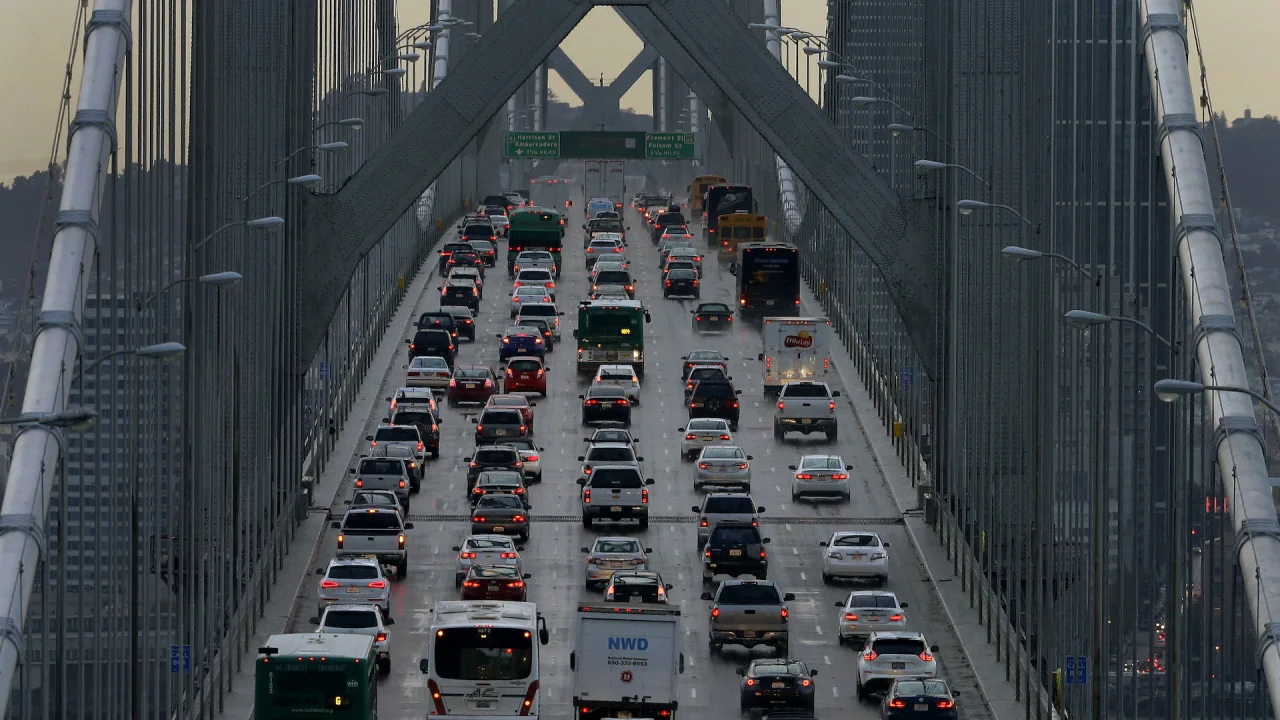A Guide to Pulling Off a (Mostly) Stress-Free Long-Distance Move
Moving to an entirely different city or state is a whole different beast.

For the last 10 years, all of my moves have happened within about a 15-block radius. For personal reasons (a dislike of annoyance and paperwork), I may never leave this neighborhood in Manhattan. Then again, I may not have a choice. You never know when something—a great job opportunity or the sudden desire to experience something new—may come up. If and when you find yourself moving not just locally, but quite a distance, there are some unexpected hurdles you'll need to keep in mind that differentiate this from your standard move.
Your budget has to be on point
Budgeting for any kind of move is a key to not going broke during the process, but your expenses for a longer move are going to be more, obviously, and are also going to include quite a few things that you may not immediately think of.
Monthly bills
If you're undergoing a more significant move, chances are good that you'll have a rent and utilities overlap, which should be part of your budget planning.
In addition to billing overlap, consider any fees you may incur for canceling utility accounts or opening new ones—be sure to check with your new city on how much all of that costs around there. The city you're moving to might have higher taxes, for instance, which may make your monthly bills higher than you expect.
You should also think about your other monthly expenses that may change after your move. Your gym membership is a good example. Are you locked into one that is going to be hard to cancel? Many gyms require proof that you're moving out of the region or a certified letter to cancel your membership.
On this topic, while it's not quite related to budget, necessarily, check with your doctor, dentist, and other providers about getting referrals, having prescriptions moved to new pharmacies, and if there's anything you should consider related to your healthcare in the new city while you find new providers. Do a quick scan of your checking account to identify any city-specific recurring charges, like public transit passes or bills.
Repairs on the new place
Repairs on the old or new home can also add up, especially if you're moving to the new place sight-unseen or if you haven't had a chance to truly assess it. One person I spoke to who moved cross-country, for instance, said the new house they moved to was great—but it had been unoccupied for a while before they moved in, which resulted in spending some time and money cleaning up that they hadn't accounted for.
Food and lodging
The farther you move, the longer you'll spend without a roof over your head and possibly even without a lot of your possessions, as they may still be in transit after you arrive. Don't forget to budget in some money for takeout and even hotel stays, if necessary.
Building the budget will take time. Get quotes from a variety of moving companies, figure out your travel situation, add in money for food and bills in the new city, consider whether you need to make any repairs on your old place, and determine what, if anything, it will cost to update your identification and utilities. When you're done ballparking all that, add 10 to 15% onto the number you end up with, advises Rob Rimeris, owner of EverSafe Moving Co. According to him, that "isn't just practical," but "gives people back a sense of agency when plans shift." When you find yourself in a brand-new town, having a sense of agency will keep you feeling sane.
How to choose the right movers
Finding a good moving company is crucial for any move, but when your stuff is getting hauled across the state—or across the country—it's even more important to do your research.
"Find a company that is licensed, insured, has good reviews, and has the proper checks and balances in place," says Charles Chica, co-owner of CT Best Movers. You might be tempted to go with whatever company is the cheapest, but it's important to weight price as just one of many factors.
Spend time looking for a company, get your estimates in writing, and provide as much detail as you can about whether you will need help with packing and furniture disassembly and reassembly, as well as what the parking situation is at both the pickup and drop-off locations. Communicate clearly and honestly and make sure all of the communication you receive is backed up in writing. The farther you move, the more complicated this might be, so use an honesty-first approach to avoid any surprise fees or issues.
What you might not realize about long-distance moves
Alex Girard, whom I interviewed for this story, has lived in four states and recently completed his farthest move. He said that the process for selecting a moving company was trickier than he anticipated, partly because moving works a little differently over long distances.
"I didn't realize (though it makes sense) that basically the way it works is local movers on either end partner with some national trucking company to do the actual long-haul, so it was kind of hard to compare services," he says.
Another difference is that the movers won't load your stuff up and drive directly to your new place, which requires extra planning on your part.
"Since the moving companies are partnering with trucking lines," Girard says, "they don't do a special delivery straight to the new house from the old one. Your stuff sits at a warehouse on both sides for a while until they can be loaded onto the next truck out."
To avoid the disastrous situation of having to live in a new home with absolutely nothing for two or three weeks, plan for this in advance. Most places Girard spoke to said the boxes and furniture would arrive within 10 to 20 days, so he shipped his most important necessities to his new house in advance, relying on the postal system to make sure he arrived to a new home that contained the essentials he needed to work and live. That was smart, since it actually took a few weeks for the moving companies to deliver everything else, but it was also "a bit expensive."
Regardless of how far you're moving, there are things you'll need to keep with you, as movers may not want to (or may not be able to) move all of your belongings. These types of things include identification documents, medications, perishables, hazardous materials, pets (obviously), and even plants. Knowing in advance you'll need to find a safe way to transport all of these and keep them on you is important to ensuring a smooth move.
Read online reviews, but don't obsess over them
You'll certainly spend time reading online reviews as you select your moving company—and that's good, but read them with skepticism, too. Girard says he spent a lot of time researching moving companies and pointed out that he read a lot of nightmare-sounding online reviews, but didn't experience anything as catastrophic as what they described.
That's a good thing to keep in mind as you do your own research: In general, remember that online reviews only tell part of the story. Someone is more likely to write one when they're super mad and more likely to forget to write one when they have a totally unremarkable experience. Your best bet is to call as many companies as you can, speak to them directly, and make sure they're insured, knowledgeable, and reasonable. (And if you end up having a positive experience with them, consider writing a review just to help out the next person in this position.)
Get on the phone
This is a tip I learned from my mom and am always happy to share: Call people. You can get more done in a 15-minute phone call than a four-day email thread.
Whenever she and I go on a trip, she calls the chamber of commerce in that city to ask a local what, exactly, we should be sure not to miss, which has resulted in us having incredible experiences we would never have found if we'd just relied on TripAdvisor or Reddit. The same applies here. Contact your new local government to get a straightforward answer to what, exactly, you need to do to have a smooth move.
You'll need a new driver's license, for instance, and the process for obtaining it should be pretty simple, but that can vary by jurisdiction. Turning on your new utilities, updating your mailing address, learning about any new taxes or regulations—all of this should be explained to you by a knowledgeable local. It's likely they'll direct you to an online portal, yes, but you'll know you're working with the right information, which is half the battle.
Ask for help from a local
Finally, try to find a local who might be willing to answer some questions or tell you more about the town. When I moved from North Dakota to New York at 18, I was enrolled in a university where there were campus reps whose job it was to teach us about the city, but what I learned from them was nothing compared to what I ultimately learned from befriending kids who were born here. City employees can only get you so far.
If you don't know anyone in the new place, post an inquiry on Reddit (most cities have their own subreddits—do some Googling to find the most active ones wherever you're moving). In my experience, people love talking up their hometowns. From hidden gems in the culinary landscape to unexpected expenses (Girard notes that he was unpleasantly surprised by the higher taxes on alcohol in his new town), everyday people will be more likely to tell you about the everyday experiences of living there, which will help you acclimate a lot faster.









































































































![Building A Digital PR Strategy: 10 Essential Steps for Beginners [With Examples]](https://buzzsumo.com/wp-content/uploads/2023/09/Building-A-Digital-PR-Strategy-10-Essential-Steps-for-Beginners-With-Examples-bblog-masthead.jpg)





















































